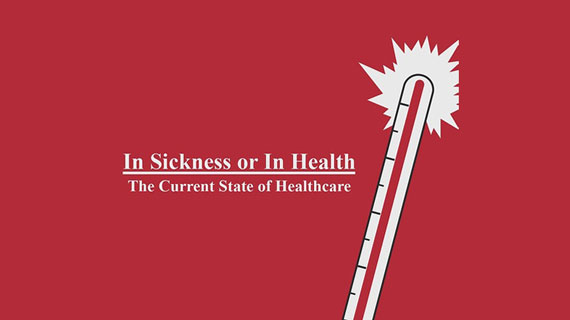Pizza & Politics - Health Care (10/2017)
Posted: October 25, 2017 | Author: Cami Mathews | Read Time: 4 minutes
 The Michael O. Leavitt Center for Politics and Public Service hosts Pizza & Politics every Wednesday at noon to discuss a current political topic. Leavitt Center student employees research the topic and moderate the conversation. These discussions expose students to a variety of important issues and encourages them to share their own perspectives while learning all sides of an issue. Free pizza is provided for all who attend.
The Michael O. Leavitt Center for Politics and Public Service hosts Pizza & Politics every Wednesday at noon to discuss a current political topic. Leavitt Center student employees research the topic and moderate the conversation. These discussions expose students to a variety of important issues and encourages them to share their own perspectives while learning all sides of an issue. Free pizza is provided for all who attend.
This week’s discussion was on the current state of health care, specifically on health care options such as Medicaid, Medicare, and the Affordable Care Act.
The discussion was moderated by Taylor Cella, a junior Information Systems major, and Ryan Robinson, a senior Political Science major. The conversation started with definitions, which are key to understanding the content.
Premium: the amount of money that an individual must pay for an insurance policy.
Deductible: the amount of money an individual pays for expenses before their insurance plan starts to pay.
Medicare: provides primary medical coverage for many people aged 65 and older and for those with disabilities.
Medicaid: provides low-income individuals and families pay for medical costs.
Single Payer: Is a health care system financed by taxes that covers the cost of essential health care for all residents, with costs covered by a single public system.
With background knowledge, students were able to answer questions about America’s health care system.
Is health care a constitutionally defined right?
The first comment of the discussion pointed out that the Constitution does not explicitly define health care as a right. However, as pointed out by a different student, it does state in Article 1, Section 8 that Congress does have the right to exercise its powers for general welfare of the United States. A few pointed out that though it is not written out in the Constitution, that people should be taken care of and health care is one way to do just that.
Should the government be involved in regulating health care?
This, as one could imagine, was the big question of the day. One side of the room said that limited government is always better, so no, the government should not be involved in regulating health care. The other side said that health care is needed by all, like national security, so the government should step in and regulate.
Who would you rather see run health care: government or private businesses?
Going off of the previous question, students were asked which one they would rather see, government or private businesses running health care. Comments suggested that if businesses were to regulate health care, they would need to make money as opposed to help people. One student in the audience thought this was an absurd proposal, calling out everyone who assumed all businesses were bad and have no moral or ethical conduct. No matter the thoughts, the room was still split with whether they wanted to see the government or private businesses run health care.
Should the Affordable Care Act be repealed without a plan to replace it?
The Affordable Care Act (ACA), or Obamacare, has been under fire since January with the new President taking office. In July of 2017, the Obamacare Repeal Reconciliation Act was voted down as a new option for health care. Though it was voted down, it said changes would not go into effect until 2020, giving Congress time to make changes and get it passed.
Students, even those who despise the ACA, did not like the idea of repealing it without a new plan. The audience understood that taking away the health care plan without a backup would have more negative than positive results.
Other proposed modifications to Obamacare include the Health Care Freedom Act and the Graham-Cassidy Bill. The first, known as the Skinny Bill, amends Obamacare, repeals the individual and employer mandates, and defunds Planned Parenthood for one year. The second modifies Obamacare, ends individual mandate, and states insurers must cover everyone, but states could charge different premiums based on health status.
At the moment, should health care be the number on priority for Congress and the President?
The final question of the conversation brought everyone together with the conclusion that Congress and the President need to figure out the solution to health care. Though the audience was split on what the answer should be, they felt an answer needed to be provided sooner rather than later.
This article was published more than 3 years ago and might contain outdated information or broken links. As a result, its accuracy cannot be guaranteed.
Tags: Blog Leavitt Center



